I’ll be one of the readers at the first NAWP event of the new year. Register here.
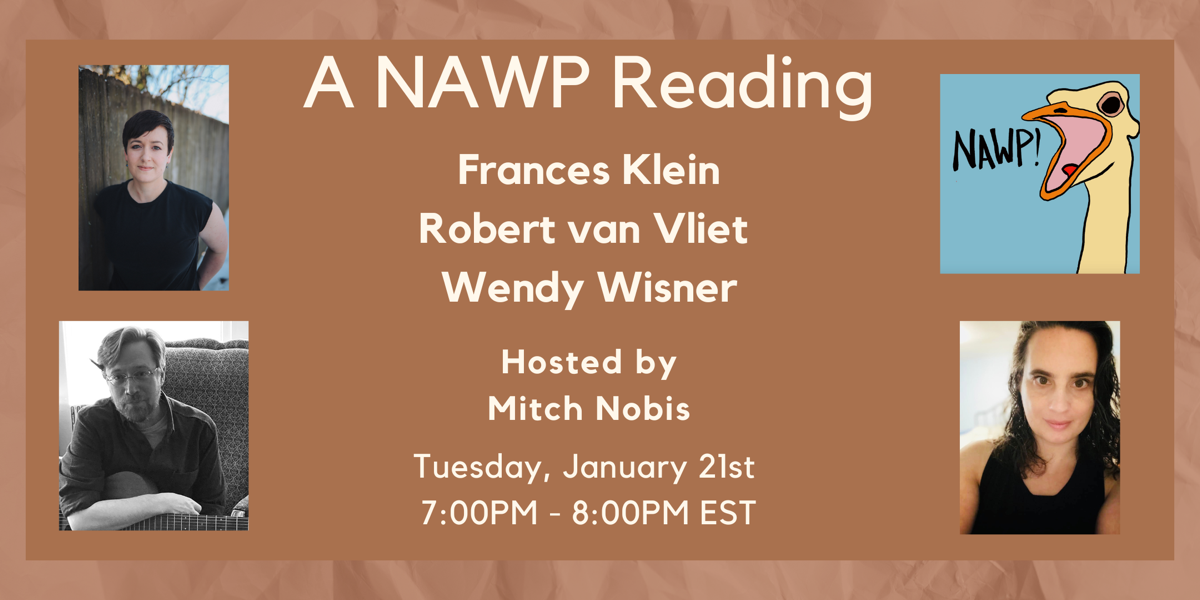
I’ll be one of the readers at the first NAWP event of the new year. Register here.

When I travelled to NYC last week, I brought Pilgrim at Tinker Creek with me. It had, once, been very important to me but I don’t think I’d pulled off the shelf in thirty years. I wondered how familiar it would seem after so long. I started it on the plane. A few days later, I arrived at this page:
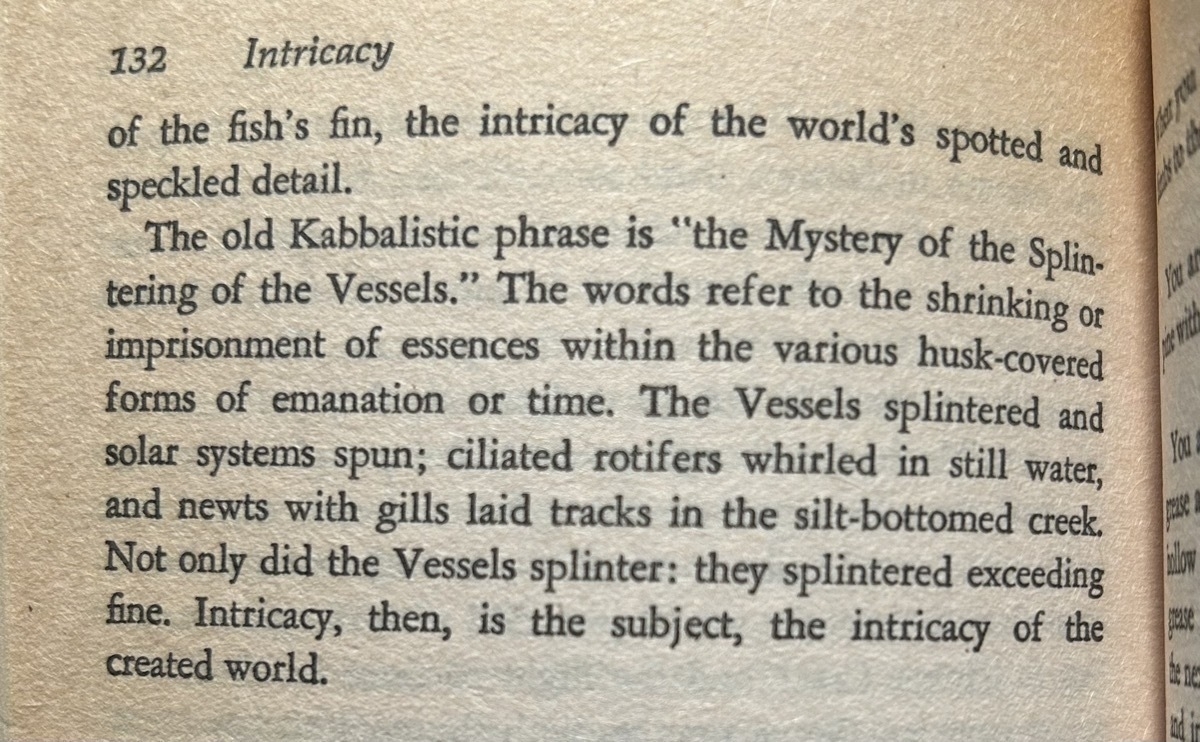
Omigosh, I almost forgot: I wrote a book!
And now there are a few signed copies at Next Chapter on Snelling Avenue in St Paul.
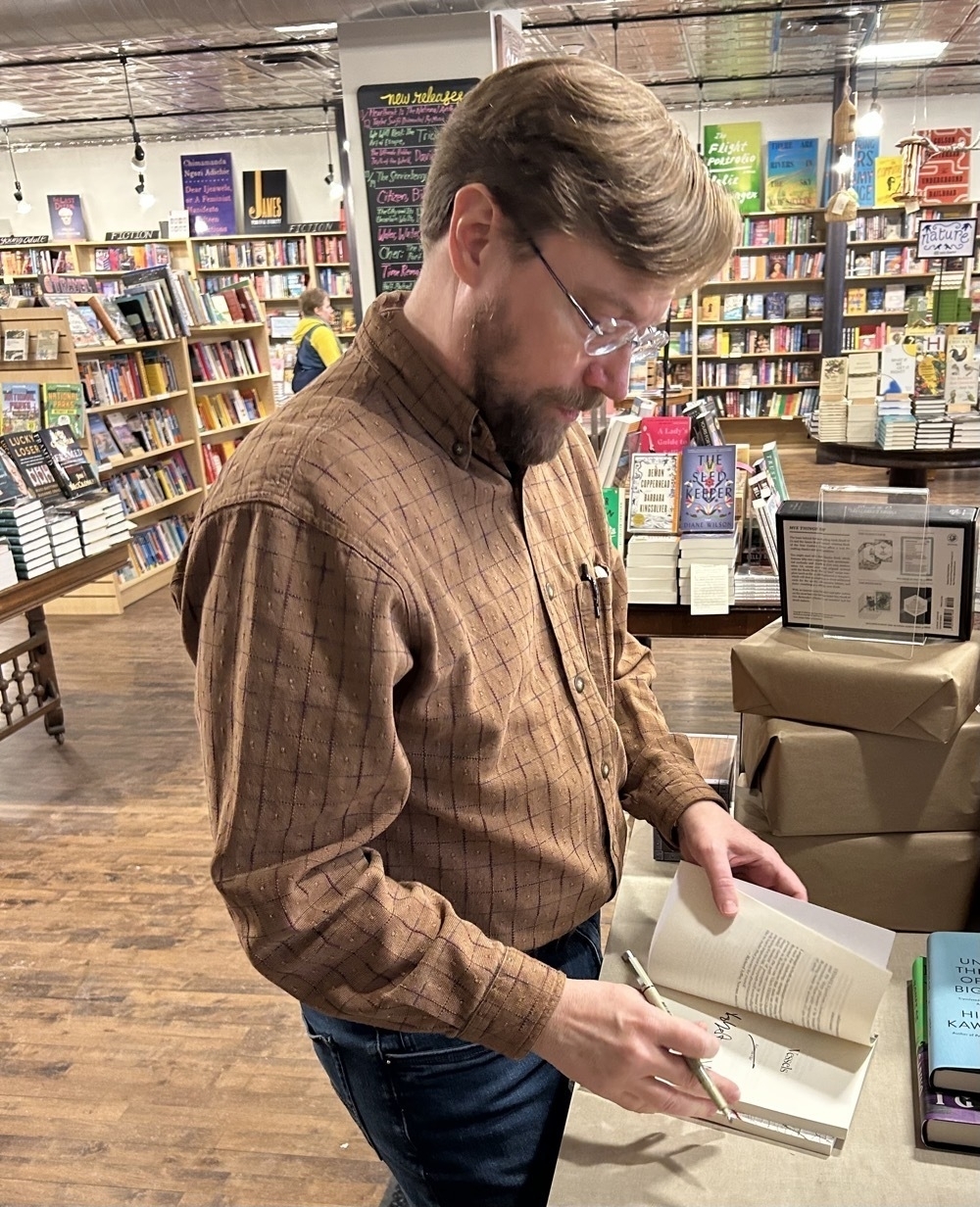
The first review has already appeared for Vessels.
I am not, of course, the intended audience and as such I find the review entirely too generous and effusive. But I do believe it captures well some of my concerns as a poet and, to some extent, my intent for the book.
In one hour!
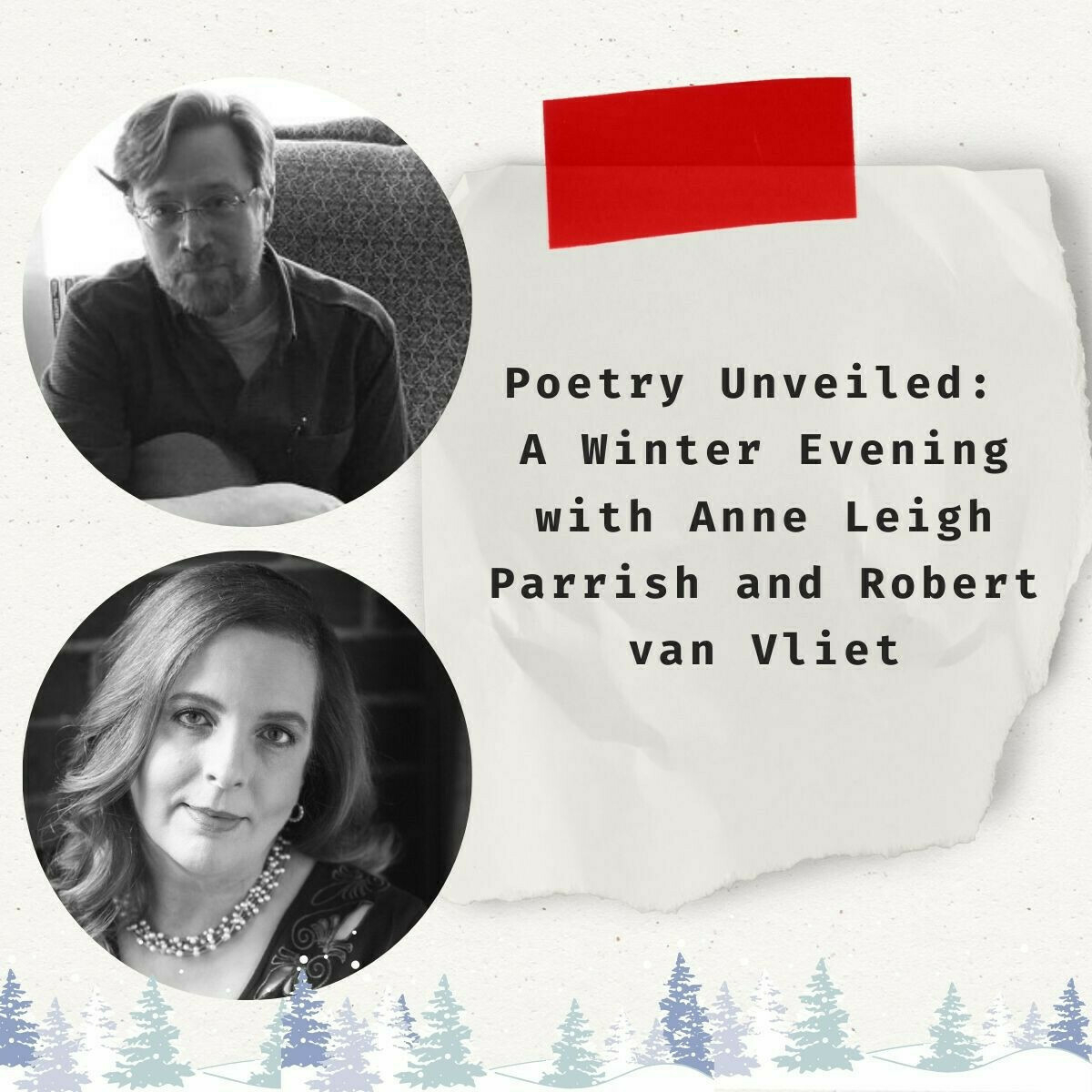
And tune in tomorrow evening to see me read from this slice of obliteration pie, this tectonic dissonance, this mute catechism, this liminal aviary.
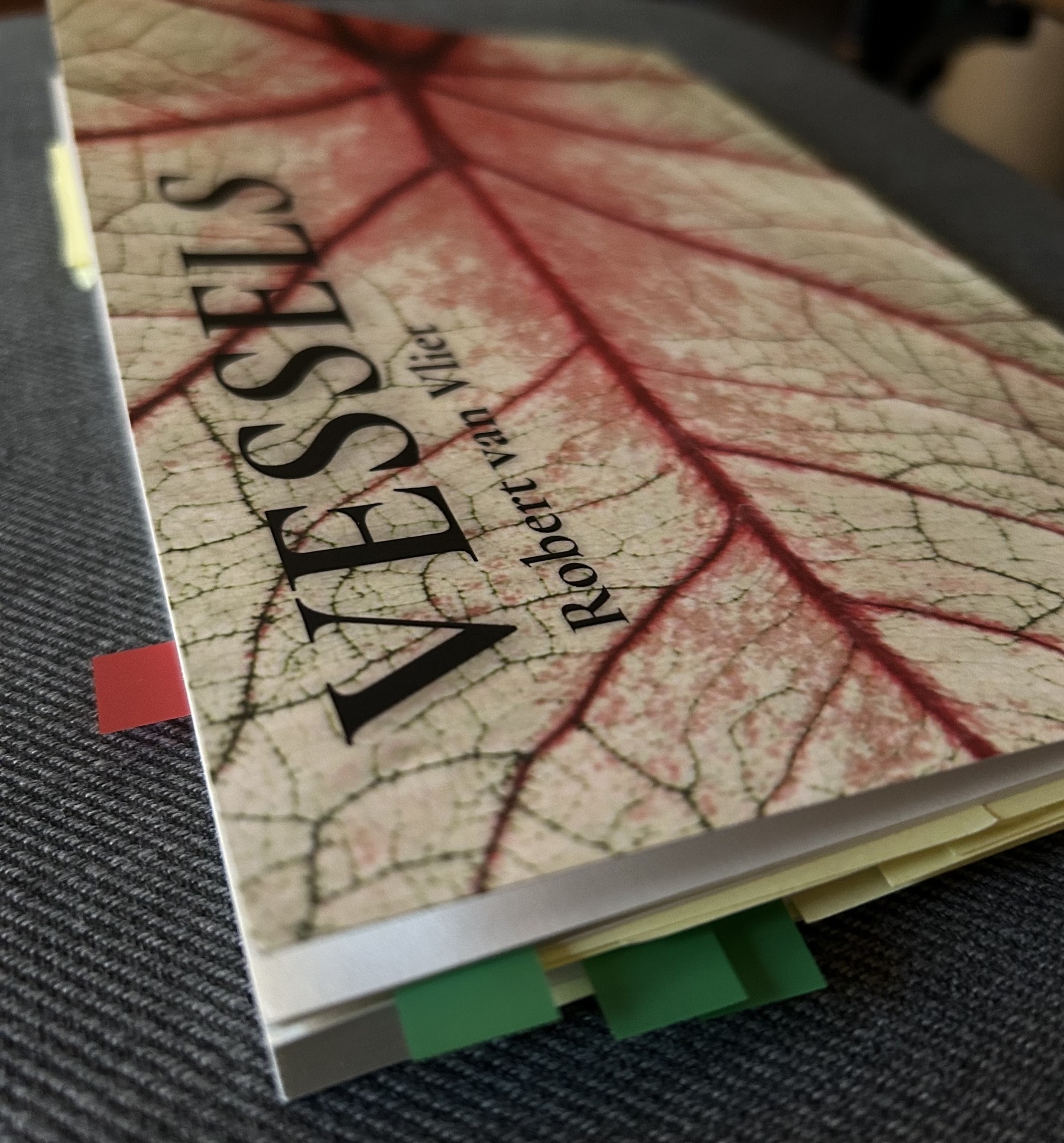
Jane Huffman:
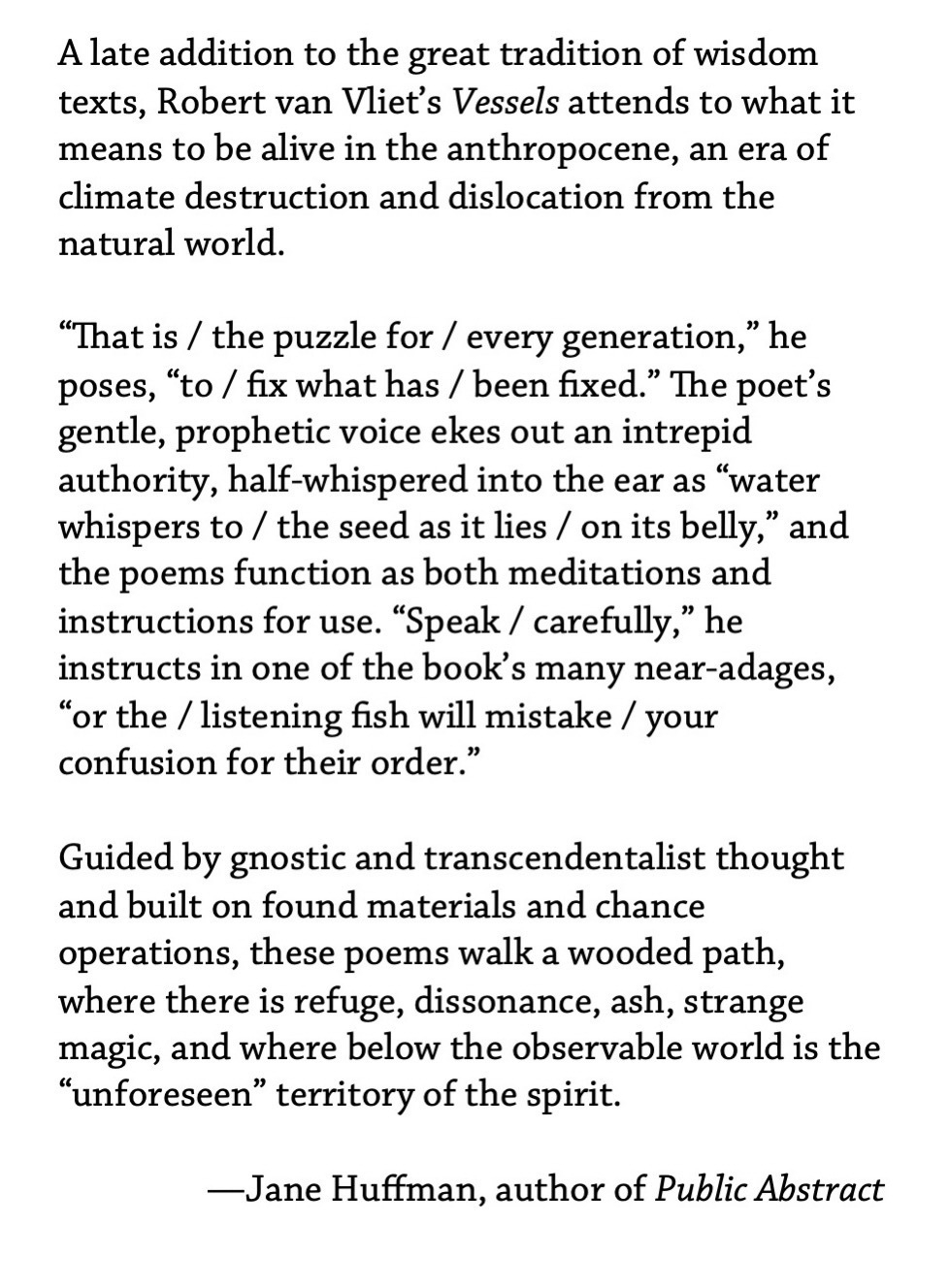
Mark Scroggins:
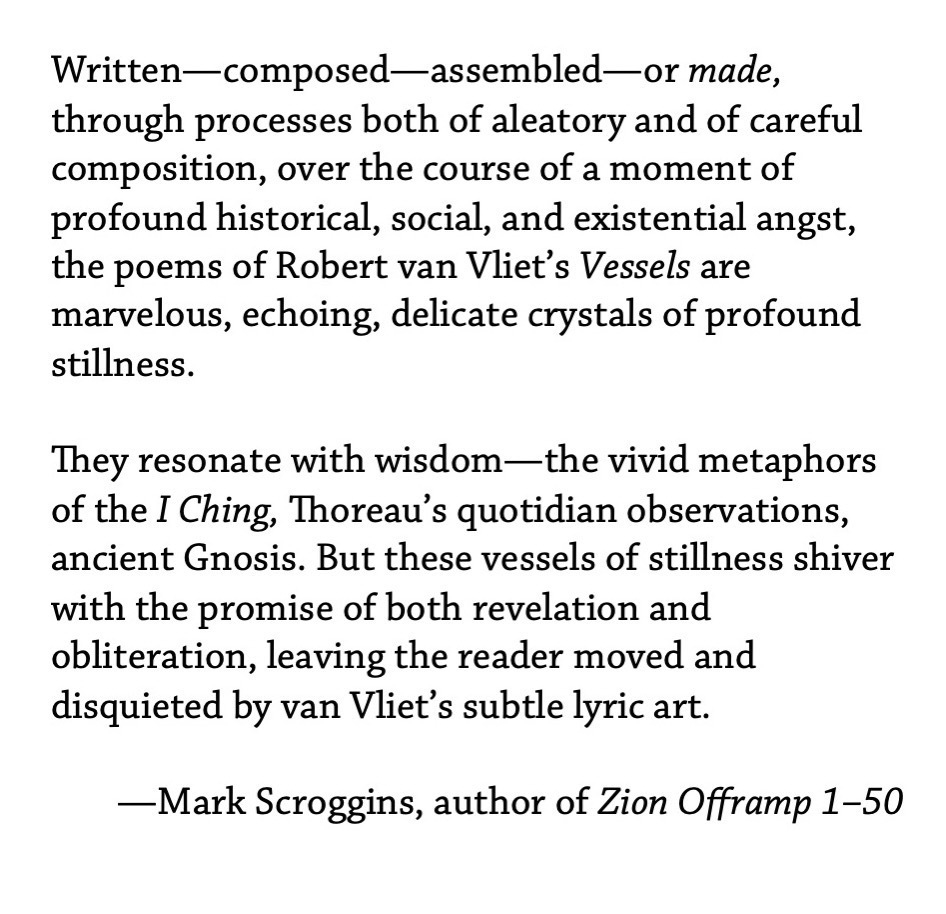
Henry Gould:
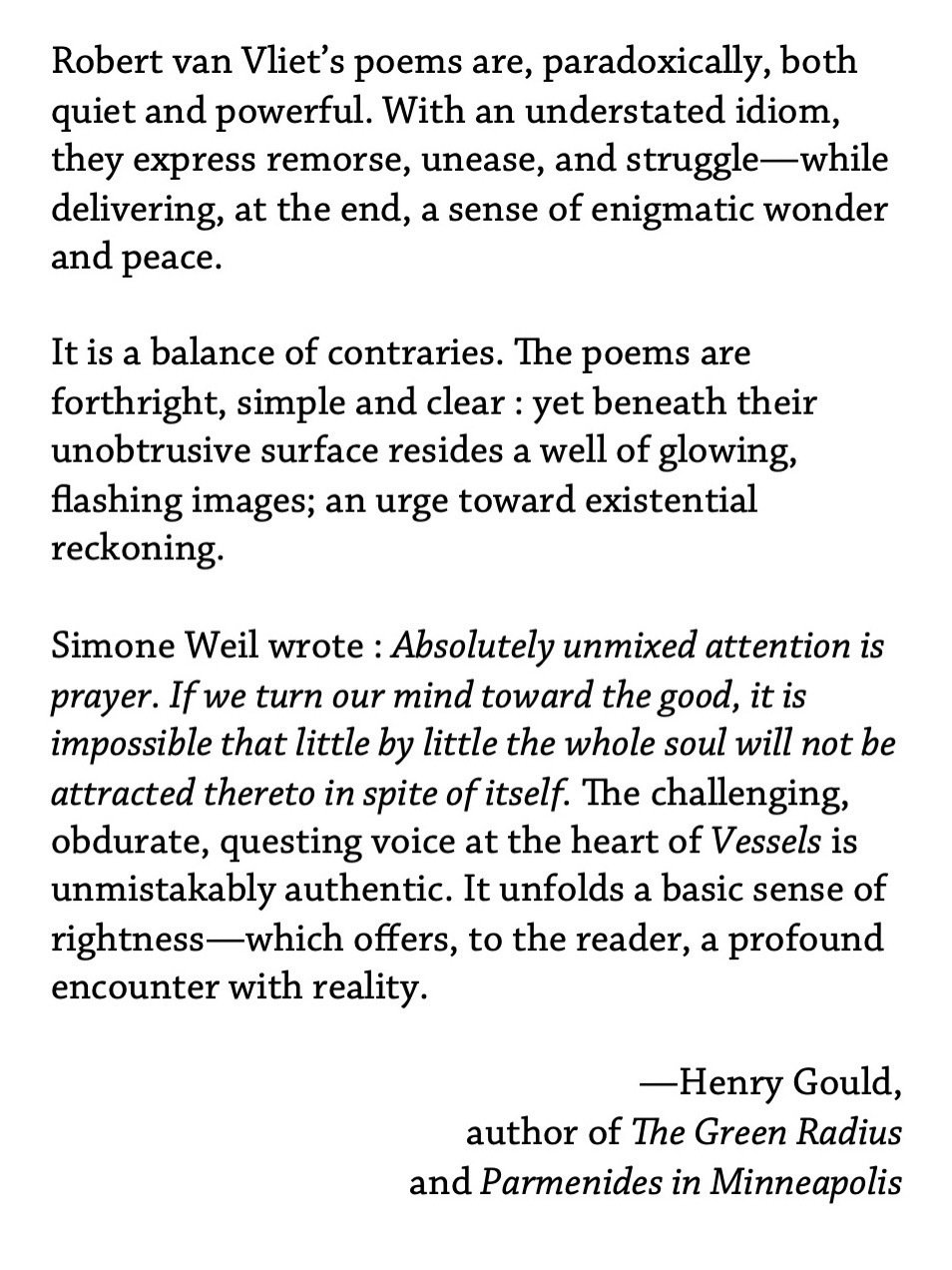
Eileen R. Tabios:
![Eileen R. Tabios “The sky remembers / what the tongue / can no longer pronounce” because the world, as well, is a vessel. Its containment may not be discernible because the world is vast. But world——like its word itself——holds all within its embrace. Such poses necessary implications, like “the hope of forgiveness” or like how one “work[s] on what / has been spoiled, not / dwelling too much on // who spoiled it and / why.” ¶ All creatures, such as humans, are also vessels but because we’re all within the same world, when we hear others as “the red / clay cracking in the empty lake. /…we must / help each other.” To live in a shared vessel also means the relevance of courage: “the tree is more than its reach.” ¶ Robert van Vliet’s Vessels is not only moving and engaging poetry; its words also have crafted a worthwhile lesson that can be summed up by the book’s beautiful raison d’etre: “Every straight line / is perfectly round.” —Eileen R. Tabios](https://cdn.uploads.micro.blog/8400/2024/03-eileen.jpg)
Patrick Pritchett, Richard Jeffrey Newman, and Mark Young:
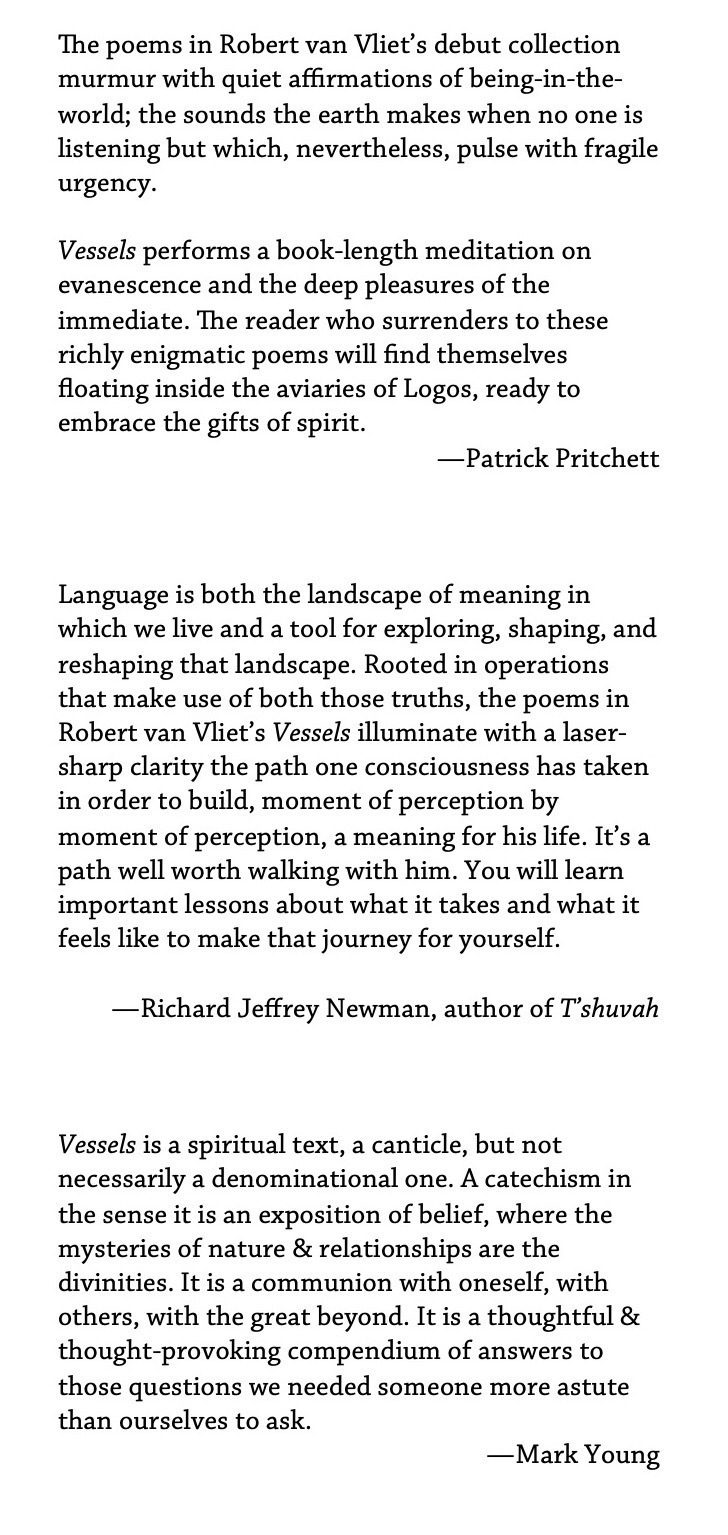
I am still astonished and humbled by the generous, acute attention Vessels received from its early readers, such as Claire Wahmanholm:
![Claire Wahmanholm In Vessels, Robert van Vliet works as a medium, reminding us that foundational texts—in this case the I Ching, Thoreau’s writings, and the Nag Hammadi library—can constitute us as much as the news cycle. Here, past fortitude and present urgency scrape against each other like tectonic plates. In the tradition of such wisdom literature, van Vliet’s poems are koan-like, gnomic, paradoxical, shot through with uncertainty and stitched together with guesswork. But they are also unmistakably tangible: van Vliet shuffles the natural world and fans its elements before us like tarot cards—“a flat cloud stained like a bloody liver”; “a nest of hair above the dry lake”; “thunder swim[ming] over the mountains.” The subject matter of Vessels is nothing less than the act of poetic creation. Van Vliet invites us to consider how and why we make poetry, and how we might use it to survive these times.](https://cdn.uploads.micro.blog/8400/2024/01-claire.jpg)
It’s publication day for my strange little book!
Order a copy here.
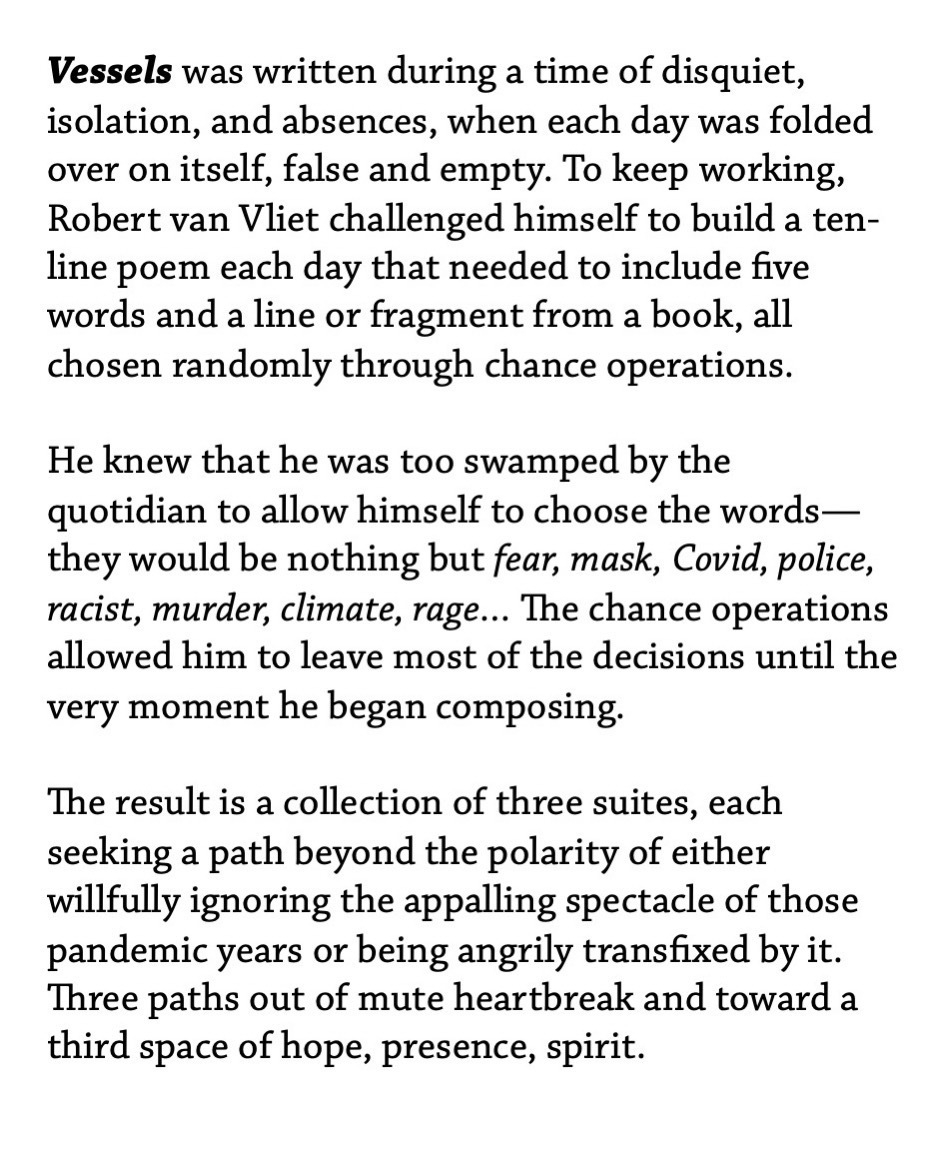
Next Wednesday evening, December 18th, at 5:30pm PST.
Hosted by Unsolicited Press and streamed live on Youtube (link to follow soon).

Vessels drops a week from today!
Then, the next evening, join me and one of my pressmates as we launch our books into the cosmos.
Details and link to follow shortly.
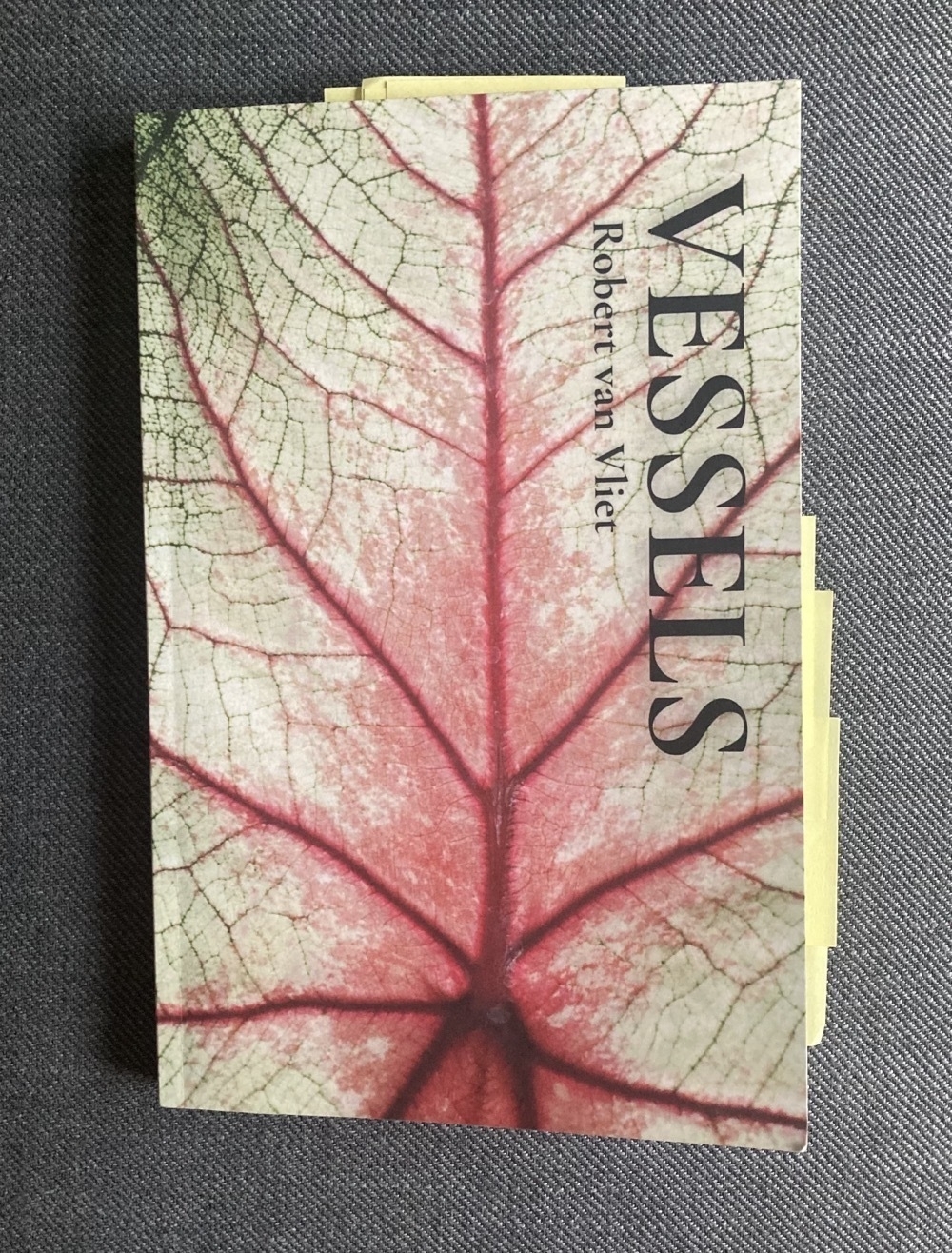
My author copies of Vessels have arrived! I guess it’s a real thing now.
You can preorder a copy here. Publication day is in exactly one month.
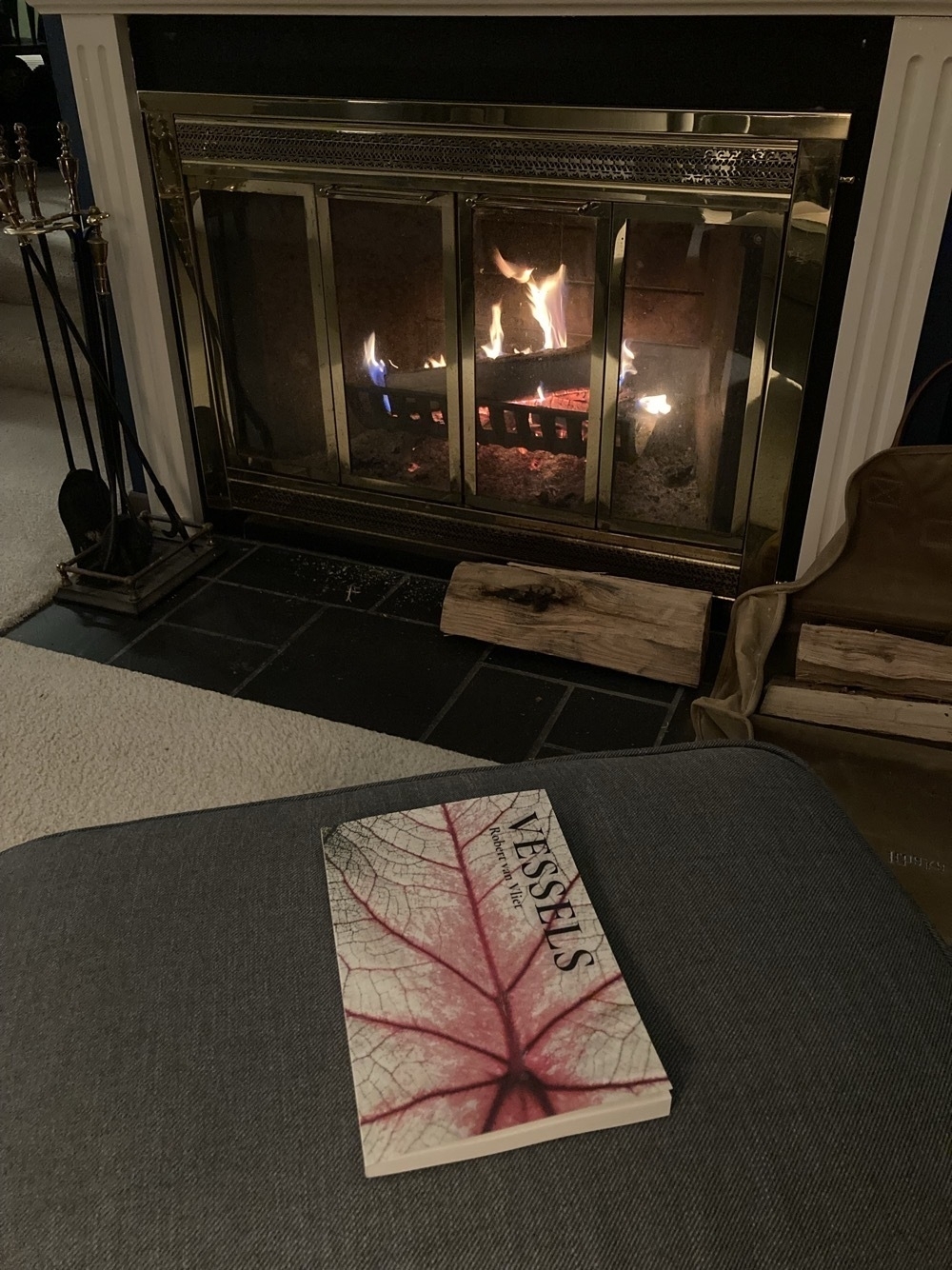
I was recently interviewed by the lovely talking about strawberries all of the time. Read it here.
The experience led me, in the newest issue of my newsletter, to brood over the nature of story and self, and how we think about our own origins. Subscribe here if you want.
In about 31 minutes, I’ll be one of the readers at Unsolicited Press’s Literary Nights series.
Tune in here!
Volume 8 of my newsletter: incoming!
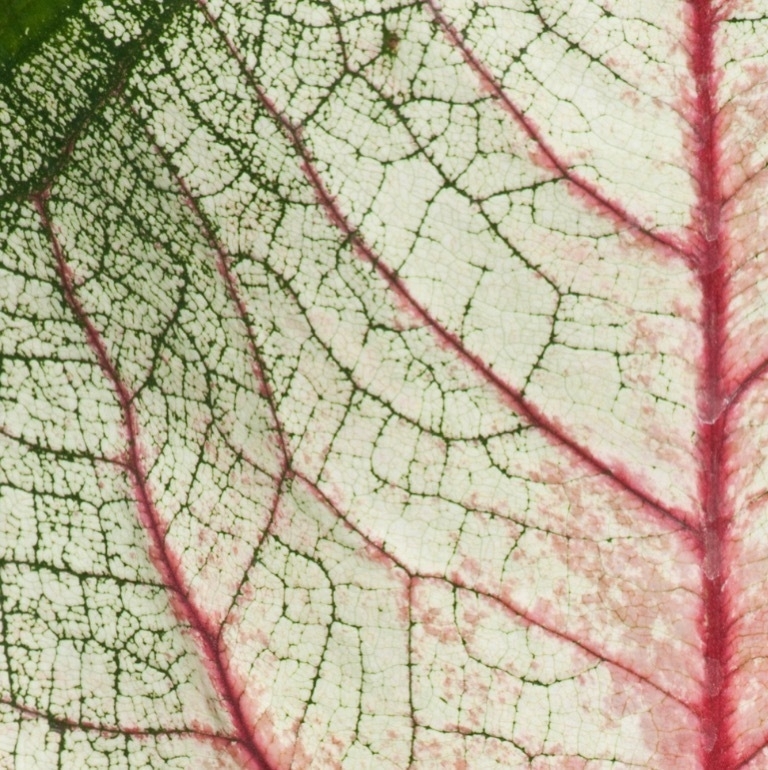
My book, Vessels, will not come out until right before the southern Summer solstice.
But today, just after the northern Summer solstice, it is now available for preorder.
And will you look at that cover.
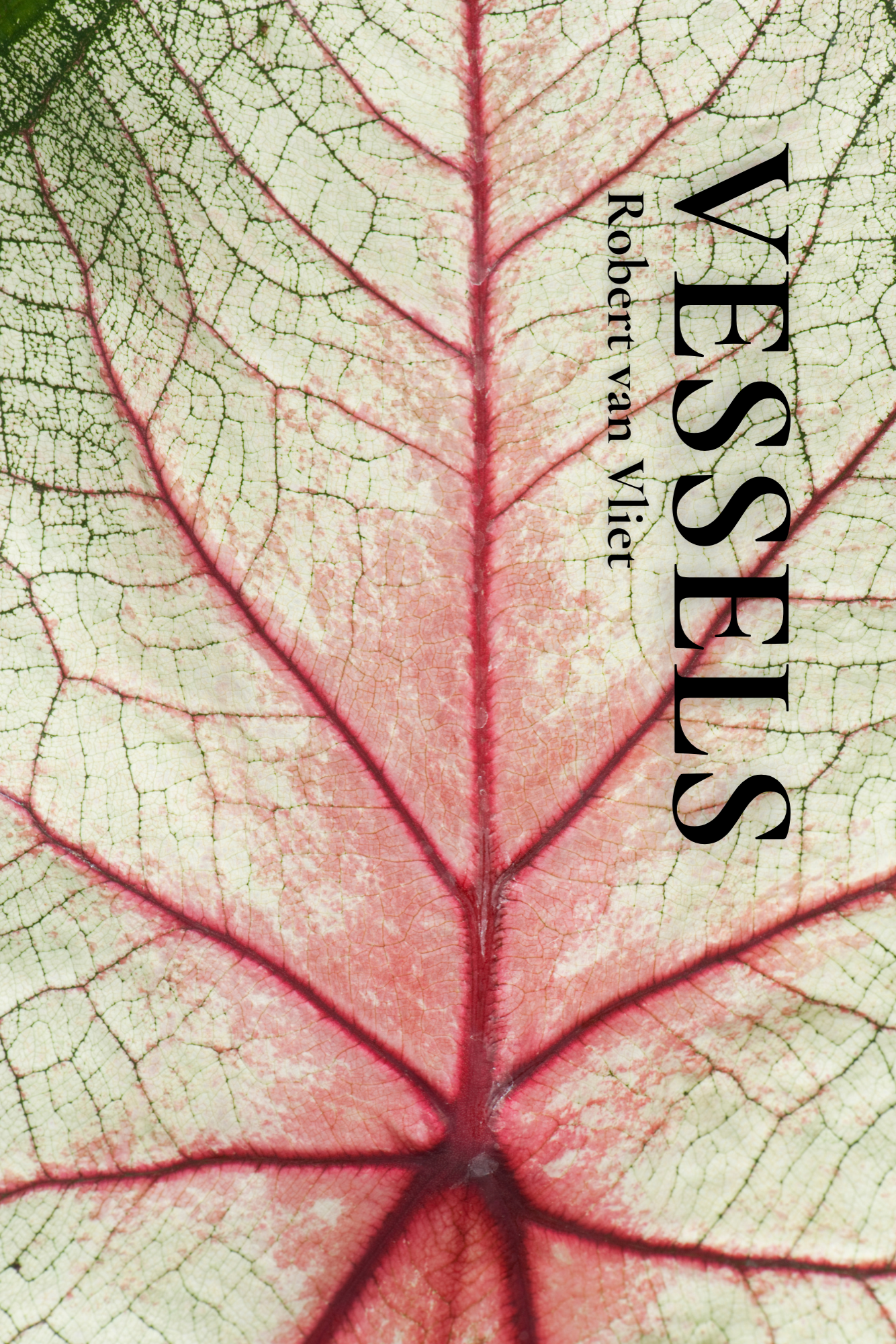
Tonight at 7:30 (in about 6 hours), I’m one of the readers at Literary Nights, hosted by my publisher, Unsolicited Press.
I’ll be reading from Vessels, and I promise to be as inarticulate, bristly, & stand-offish as you’ve come to expect. It should be an extremely awkward trainwreck of an evening!
I wrote the last poems for Vessels in June of 2021.
But I feel like I finally finished the book this week when, after reviewing the galley proof, I submitted the last edits and my final About the Author and Acknowledgements drafts.
It’s all extravagant press junkets and groupies from here on out.
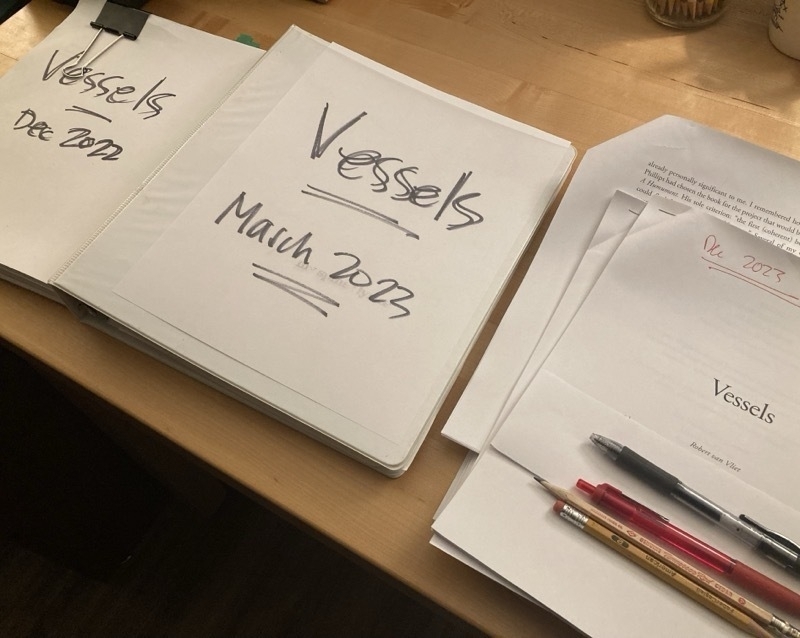
A poem of mine, “Four Lessons” has just appeared in the fabulous Guesthouse. Many thanks to Jane Huffman for including it among such excellent company.
“Four Lessons” is from my book, Vessels, which will be published next year by Unsolicited Press.
Something just happened and, honestly, it’s taken me a few days for the reality of it to sink in. It’s of no consequence to almost anyone else, of course, but it’s rather a big deal to me.
Last week, I signed a contract with Unsolicited Press, which will be publishing my debut book of poetry.
More details soon, but first I need to attend to my chapbook, which will be coming out early next year.
Well. Isn’t that just some of the best news I can’t tell anyone yet.